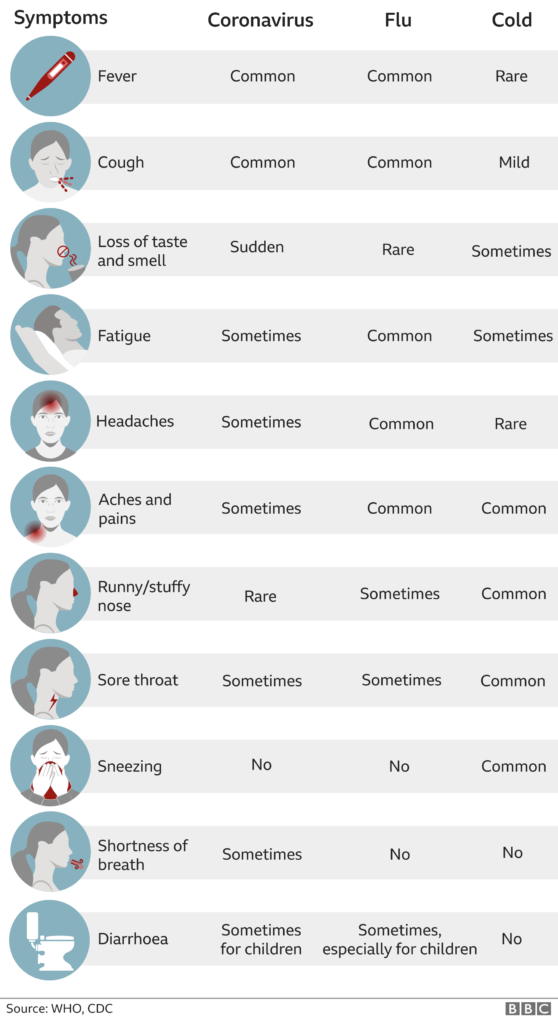

Covid Symptoms
A high temperature, a new, continuous cough, anosmia. Click here for more info…
Read more
- a high temperature – this means you feel hot to touch on your chest or back (you do not need to measure your temperature), or;
- a new, continuous cough – this means coughing a lot for more than an hour, or three or more coughing episodes in 24 hours (if you usually have a cough, it may be worse than usual), or;
- anosmia – the loss or a change in your normal sense of smell (it can also affect your sense of taste)
Common Cold
Cold symptoms: Appear gradually, affects mainly your nose and throat, makes you feel unwell, but you are OK to carry on as normal (for example, go to work). Click here for more info…
Read more
The main symptoms include:
- a sore throat
- a blocked or runny nose
- sneezing
- a cough
- a hoarse voice
- generally feeling unwell
Less common symptoms of a cold include:
- a fever (high temperature) – generally considered to be 38C (100.4F) or over (see fever in children)
- a headache
- earache – severe earache may be a sign of a middle ear infection
- muscle pain
- loss of taste and smell
- mild irritation of your eyes
- a feeling of pressure in your ears and face
The symptoms are usually at their worst during the first two to three days, before they gradually start to improve. In adults and older children, they usually last about 7 to 10 days, but can last longer. A cough in particular can last for two or three weeks.
Colds tend to last longer in younger children who are under five, typically lasting around 10 to 14 days.
Flu
You can catch flu – short for influenza – all year round. It’s especially common in winter, which is why it’s also known as ‘seasonal flu’. It usually peaks between December and March. It’s not the same as the common cold. Flu is caused by a different group of viruses. The symptoms tend to be more severe and last longer. Click here for more info…
Read more
Symptoms of flu
The symptoms of flu include:
- fever (typically 38–40°C) – this tends to be more severe in children
- fatigue/unusual tiredness
- headache
- runny nose
- sore throat
- shortness of breath or a cough
- loss of appetite
- aching muscles
- vomiting or diarrhoea
- sensitivity to light
- insomnia
- dry, unproductive cough
Flu symptoms usually peak after two or three days and you should begin to feel much better within five to eight days. However, older people or those with certain medical conditions may develop complications that can lead to serious illness and can be life-threatening.